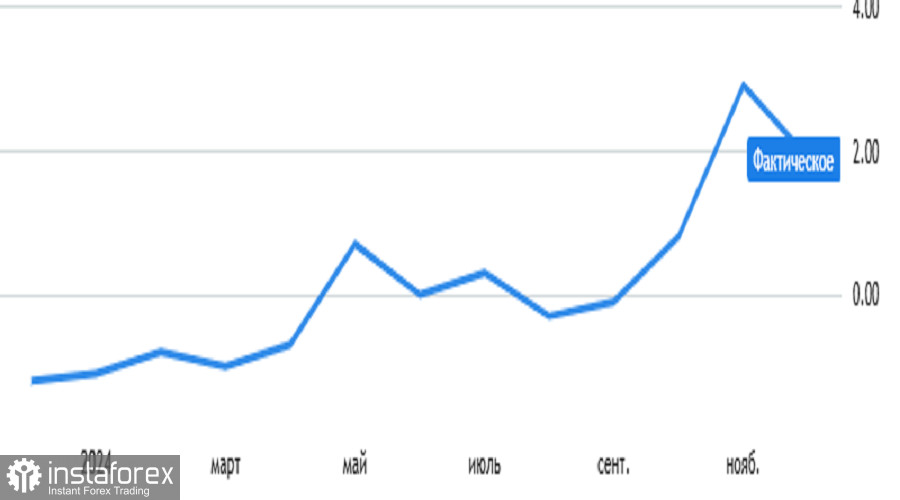Eurozone retail sales growth slowed significantly from 3.0% to 1.9%, much worse than even the most pessimistic forecasts. Yet, the euro still managed to gain ground. It is impossible to attribute it to the data on unemployment benefits applications because the total number of claims decreased by 14k against a forecast of 1k, making the data slightly better than expected.

The primary reason for this market behavior lies in today's anticipated U.S. Department of Labor report. Recent labor market data prompted investors to revise their forecasts, expecting the unemployment rate to rise from 4.1% to 4.2%. This expectation has fueled the euro's rally. However, the euro could weaken significantly if unemployment remains unchanged and over 200k new jobs are created in nonfarm sectors.
 English
English 
 Русский
Русский Bahasa Indonesia
Bahasa Indonesia Bahasa Malay
Bahasa Malay ไทย
ไทย Español
Español Deutsch
Deutsch Български
Български Français
Français Tiếng Việt
Tiếng Việt 中文
中文 বাংলা
বাংলা हिन्दी
हिन्दी Čeština
Čeština Українська
Українська Română
Română

